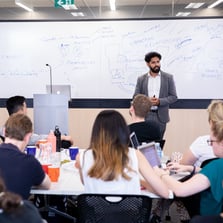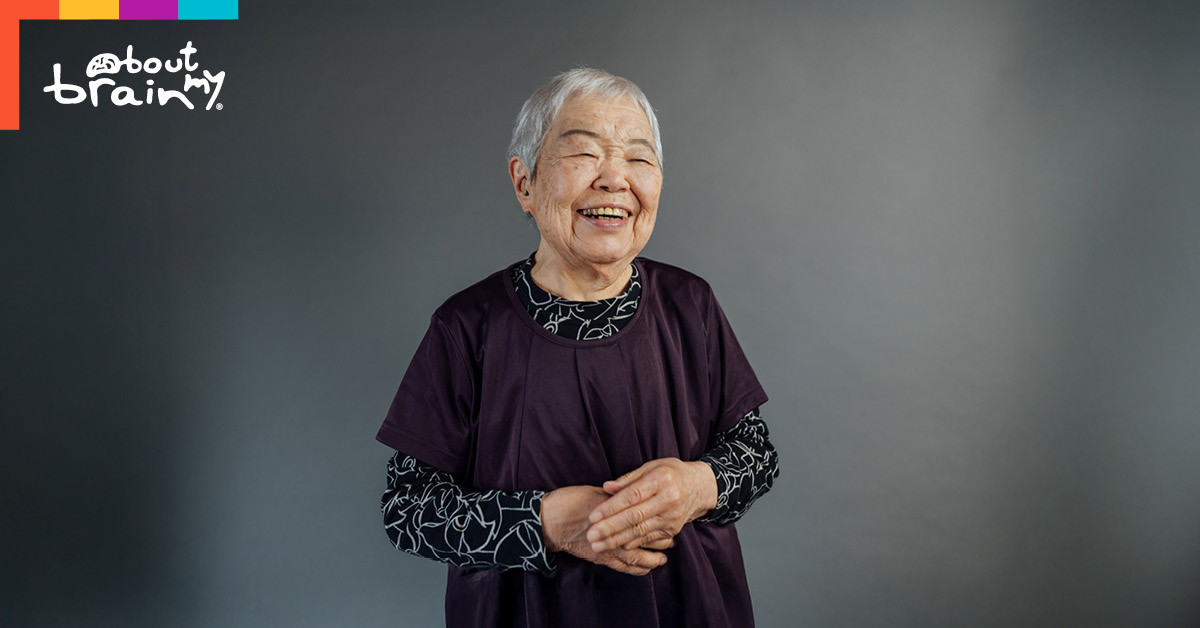How we define the value of being physically together has fundamentally changed.
The last two years have brought about enormous change in how, when and where we work. The expectation around hybrid work has contoured a new norm that brings great benefits for both the Company and its people. The 2019 commute times no longer stress employees by the time they reach their offices. The expensive overheads of physical space no longer limit workflow and efficiency.
All of this comes with new challenges. How do employees care about the company and its culture without constant human connection?
Flexible working hours also means that employees are corresponding from their home offices when it’s convenient and there may be unreasonable expectations to get responses outside working hours.
The digital workforce comes with a hidden cost that does not appear in any employee contract. This cost is on the human body. 15 years ago, the internet was an escape from the real world. Today, the real world is an escape from the internet. If we continue to progress into more immersive digital experiences, it will come at a further cost of our cognitive capacity.
Burnout, mental fog, chronic fatigue, irregular sleep patterns and anxiety are trending with no end in sight. For Companies to remain relevant, there is a fundamental need to reevaluate their relationship to their employees needs and this begins with an understanding of embodied cognition.
Embodied cognition stems from the idea that the body has more control over the brain than previously thought. Focused attention to one's own bodily state engages higher order brain networks involved in the interoceptive perception – specifically the insular cortex, anterior cingulate, posterior parietal somatosensory cortex and orbitofrontal cortex.
The strength of this interoceptive connection between brain and body is known as vagal tone and has been used in treatment of depression, anxiety and chronic fatigue where the nervous system is restored to an optimum balance without medication or side effects.
It is impossible to understand the needs of your employees and see things the way other people do, if you are unable to see it in yourself. Interoception is the ability to be aware of one's own bodily state in any given moment and this can be established through improving vagal tone.
 Learn more about how to heighten vagal tone in Kaushik’s online course!
Learn more about how to heighten vagal tone in Kaushik’s online course!
About My Brain Institute readers can access the course with a limited time 20% discount using the code: instantaccess
When asked about the biggest source of innovation in the rapid reshuffle to a hybrid workforce, the CEO of Microsoft said:
Diversity, technical skills, and social equity amounts to nothing if it’s not balanced with empathy. This is at the heart of innovation and providing solutions to unmet needs.
Satya Nadella
Upcoming Brain-Friendly Channel Session!
When: Jan 6, 2022 @ 8AM AEDT
Topic: Embodied Cognition
Where: Streaming Live on YouTube, LinkedIn or Facebook!
- i4 Neuroleader (353)
- Leadership & Culture (336)
- Brain Health & Wellbeing (206)
- Innovation (97)
- Performance (85)
- Our News (79)
- Collaboration (68)
- Agility (53)
- Practitioner Stories (44)
- In The Press (36)
- Make Me A Leader (33)
- Balance (31)
- Integration (30)
- Imagination (29)
- Awareness (23)
- Brain-Friendly Channel (22)
- Brain-Friendly Leadership (22)
- Communication (22)
- Curiosity (21)
- Inspiration (19)
- Intuition (19)
- Attitude (17)
- Courage (16)
- Adaptability (14)
- Case Studies (14)
- Drive (14)
- Generosity (13)
- Ethics (9)
- Mental Readiness (9)
- Influence (8)
- Retreat (8)
- Brain-Friendly Leadership (1)
- Oracle Cards (1)
- 1 November 2025 (2)
- 1 September 2025 (3)
- 1 August 2025 (5)
- 1 July 2025 (5)
- 1 June 2025 (2)
- 1 April 2025 (1)
- 1 March 2025 (8)
- 1 February 2025 (3)
- 1 September 2024 (4)
- 1 July 2024 (2)
- 1 June 2024 (6)
- 1 May 2024 (2)
- 1 April 2024 (3)
- 1 March 2024 (1)
- 1 November 2023 (1)
- 1 August 2023 (1)
- 1 July 2023 (2)
- 1 June 2023 (2)
- 1 May 2023 (4)
- 1 April 2023 (2)
- 1 March 2023 (7)
- 1 February 2023 (4)
- 1 January 2023 (1)
- 1 September 2022 (1)
- 1 May 2022 (3)
- 1 April 2022 (1)
- 1 March 2022 (5)
- 1 February 2022 (4)
- 1 January 2022 (4)
- 1 December 2021 (2)
- 1 November 2021 (4)
- 1 October 2021 (3)
- 1 September 2021 (6)
- 1 August 2021 (1)
- 1 April 2021 (1)
- 1 December 2020 (2)
- 1 November 2020 (1)
- 1 September 2020 (1)
- 1 August 2020 (1)
- 1 July 2020 (3)
- 1 June 2020 (4)
- 1 May 2020 (3)
- 1 April 2020 (4)
- 1 March 2020 (6)
- 1 February 2020 (4)
- 1 January 2020 (2)
- 1 December 2019 (3)
- 1 November 2019 (3)
- 1 October 2019 (5)
- 1 September 2019 (4)
- 1 August 2019 (4)
- 1 July 2019 (4)
- 1 June 2019 (5)
- 1 May 2019 (9)
- 1 April 2019 (9)
- 1 March 2019 (8)
- 1 February 2019 (7)
- 1 January 2019 (8)
- 1 December 2018 (5)
- 1 November 2018 (10)
- 1 October 2018 (16)
- 1 September 2018 (9)
- 1 August 2018 (10)
- 1 July 2018 (9)
- 1 June 2018 (8)
- 1 May 2018 (9)
- 1 April 2018 (9)
- 1 March 2018 (9)
- 1 February 2018 (8)
- 1 January 2018 (8)
- 1 December 2017 (6)
- 1 November 2017 (9)
- 1 October 2017 (9)
- 1 September 2017 (8)
- 1 August 2017 (10)
- 1 July 2017 (8)
- 1 June 2017 (8)
- 1 May 2017 (9)
- 1 April 2017 (8)
- 1 March 2017 (6)
- 1 January 2017 (3)
- 1 December 2016 (4)
- 1 November 2016 (5)
- 1 October 2016 (4)
- 1 September 2016 (2)
- 1 August 2016 (4)
- 1 July 2016 (4)
- 1 June 2016 (2)
- 1 May 2016 (3)
- 1 April 2016 (3)
- 1 March 2016 (7)
- 1 February 2016 (2)
- 1 January 2016 (5)
- 1 December 2015 (2)
- 1 November 2015 (2)
- 1 October 2015 (4)
- 1 September 2015 (2)
- 1 August 2015 (2)
- 1 July 2015 (1)
- 1 June 2015 (3)
- 1 May 2015 (4)
- 1 April 2015 (5)
- 1 March 2015 (3)
- 1 February 2015 (3)
- 1 January 2015 (3)
- 1 December 2014 (3)
- 1 November 2014 (3)
- 1 October 2014 (3)
- 1 September 2014 (5)
- 1 August 2014 (4)
- 1 July 2014 (5)
- 1 June 2014 (3)
- 1 May 2014 (1)
- 1 March 2014 (1)
- 1 December 2013 (2)
- 1 November 2013 (1)
- 1 July 2013 (1)
- 1 June 2013 (1)
- 1 May 2013 (3)
- 1 April 2013 (1)
- 1 March 2013 (2)
- 1 February 2013 (1)
- 1 January 2013 (2)
- 1 November 2012 (1)
- 1 October 2012 (1)
- 1 September 2012 (1)
- 1 August 2012 (2)
- 1 July 2012 (1)
- 1 June 2012 (1)
- 1 May 2012 (2)
- 1 April 2012 (1)
- 1 February 2012 (1)
- 1 January 2012 (1)
- 1 November 2011 (1)
- 1 October 2011 (3)
- 1 September 2011 (2)
- 1 July 2011 (1)
- 1 June 2011 (1)
- 1 May 2011 (1)
- 1 April 2011 (1)
- 1 March 2011 (1)
- 1 February 2011 (2)
- 1 January 2011 (4)
- 1 December 2010 (4)
- 1 November 2010 (3)
- 1 October 2010 (5)
- 1 September 2010 (4)
- 1 August 2010 (4)
- 1 July 2010 (3)
- 1 June 2010 (4)
- 1 May 2010 (7)
- 1 April 2010 (5)
Subscribe by email
You May Also Like
These Related Stories

Your Brain On Change

From Digital Lovers To Grandmothers-For-Hire: What Japan Teaches Us About Loneliness



No Comments Yet
Let us know what you think